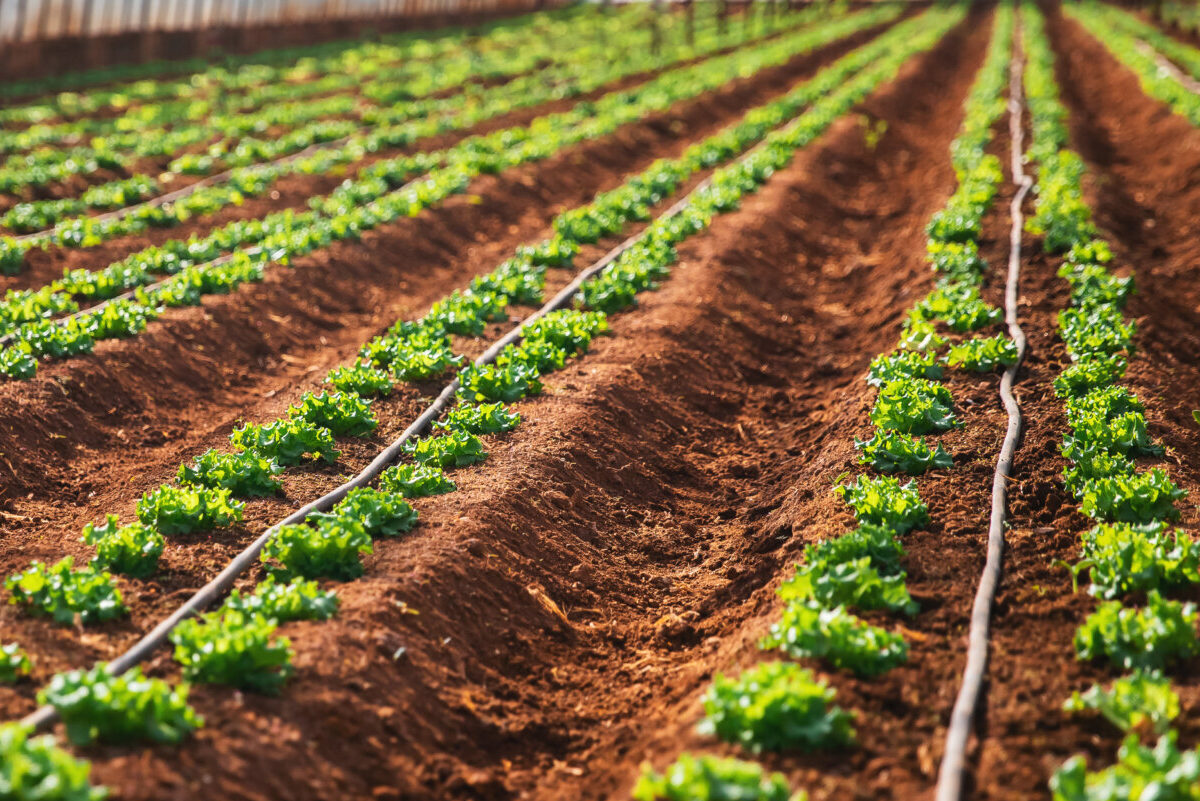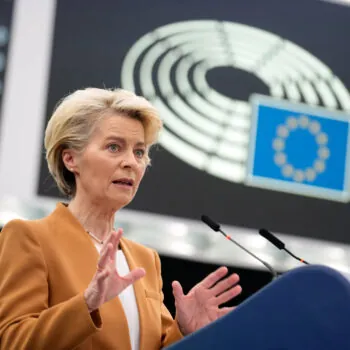Agriculture moved up the agenda in 2022, with the first dedicated agriculture day at COP27, yet parties did not give the UNFCCC a clear mandate to address food systems transformation. Resources needed for climate resilience are still lacking, and the finance gap is widening.
Agriculture, forestry, and other land use drives 23% of carbon emissions, the second-largest driver after energy. Food systems transformation is critical to keeping us on a 1.5C pathway.
Below, we explore the progress made on food systems at COP27.
COP27 decisions defining the direction of food systems action
Food and agriculture climbed political agendas in 2022. For the first time the COP cover text highlighted the need to build climate-resilient food systems and the link between food and water security.
The Koronivia Joint Work on Agriculture (KJWA) mandate – which recognises the unique role the agriculture sector plays in the fight against climate change – expired during COP27. This mandate supported the collection of technical and scientific knowledge of agriculture and food production, identifying gaps, priorities and opportunities. Future work must now translate these results into concrete action. Despite the urgent need to agree a forward mandate, divisions on mitigation, nature, and “food systems” language stalled progress.
Pushback came from the G77+China negotiating group, arguing that ‘food systems’ is not yet well enough defined, and from the US, who were reluctant to include demand-side measures such as diet. Countries including France and the UK, as well as the EU, whose domestic policy already covers food systems transformation, pushed for a wider mandate for future work.
Agreement was reached on a mandate for the four-year Sharm el-Sheikh Joint Work on Implementation of Climate Action on Agriculture and Food Security, to implement KJWA outcomes. Positives include calls for better coordination across UNFCCC and beyond, emphasis on leveraging finance, technical assistance, research, the critical role of smallholder farmers, and building a best practice web platform.
However, the mandate is narrow, without language on food systems-wide climate action. Food systems transformation must be at the heart of the UNFCCC.
New finance commitments for food system adaptation
There were clear calls pre-COP for finance to support adaptation in food systems. The IEA’s report on the COP26 Breakthroughs underlined the priority to “improve access to finance for smallholder farmers in developing countries”.
Some finance providers delivered:
- Ireland pledged €14 million to CGIAR to support transformation of food–land–water systems.
- The US pledged $25 million to the Africa Adaptation Initiative to launch a Food Security Accelerator. President Biden committed $100 million to support food systems in Africa.
- The Bill and Melinda Gates Foundation pledged $1.4 billion to help smallholders in Sub-Saharan Africa and South Asia adapt.
COP26 to COP27: meaningful progress on commitments
One year on from COP26, we take stock of COP26 commitments and new COP27 initiatives.
|
Initiative |
Leads / Signatories |
COP26 |
COP27 |
|
Glasgow Leaders’ Declaration on Forests and Land Use |
26 governments, plus the EU |
140+ countries committed to halt and reverse forest loss and land degradation by 2030 with $12bn in funding committed. |
Launched the Forest and Climate Leaders’ Partnership; an additional $4bn in public and private finance. |
|
Agriculture Breakthrough |
UK, Egypt
|
42 countries endorsed the Breakthrough Agenda. |
Australia, Cambodia, Germany and Ireland endorsed the Agriculture Breakthrough |
|
Agriculture Innovation Mission for Climate |
USA, UAE 41 country members, plus the EU 275 total partners |
$4bn in funding committed.
|
An additional $4bn in funding committed; 22 new innovation sprints. |
|
Food and Agriculture for Sustainable Transformation |
Egyptian Presidency, FAO Over 40 regional and global partners 19 governments |
n/a |
Increase climate finance for agriculture and land use to one-third of all climate finance by 2030; unite existing and future initiatives to transform food systems. |
|
Initiative on Climate Action and Nutrition |
Egyptian Presidency, WHO, FAO, GAIN |
n/a |
Foster global collaboration to accelerate action at the intersection of climate and nutrition. |
|
Global Fertiliser Challenge |
USA, Germany, Norway, Netherlands, EU Focus geographies include Brazil, Pakistan, Colombia, Vietnam, India, Sub-Saharan Africa |
n/a |
$135m in new funding to improve fertiliser efficiency. |
The Net Zero Roadmap for Food, which the UN Food and Agriculture Organization (FAO) will develop by COP28, will be critical for private investment in the sector.
But a vast gap remains. IFAD tracked only $10bn in annual climate finance reaching smallholder farmers globally in 2017 and 2018.
Maintaining momentum in 2023
COP27 did not mandate the UNFCCC to drive work on food systems transformation. However, the inclusion of food in the COP cover text offers a window of opportunity, reflecting growing political interest in the sector. The FAST initiative creates space for future COP Presidencies to drive food systems transformation outside of official negotiations. Harnessing these, and building an alliance of ambitious governments, across upcoming international moments can keep food systems firmly on political agendas:
- A robust and ambitious post-2020 Global Biodiversity Framework at the biodiversity COP15, recognising the interconnection between biodiversity, climate and food security.
- Building bridges between climate, biodiversity and land COPs, reflecting the critical role of sustainable land management in underpinning resilient food systems and securing livelihoods.
- Strong leadership from India, across their G20 Presidency and stewardship of the Glasgow Breakthrough Agenda, to mobilise more and better-quality funding to support food systems transformation and adaptation for smallholders.
- Ensuring implementation of commitments made at COP27 and working with the UAE to ensure a dedicated food systems day at COP28 to reflect on progress.



